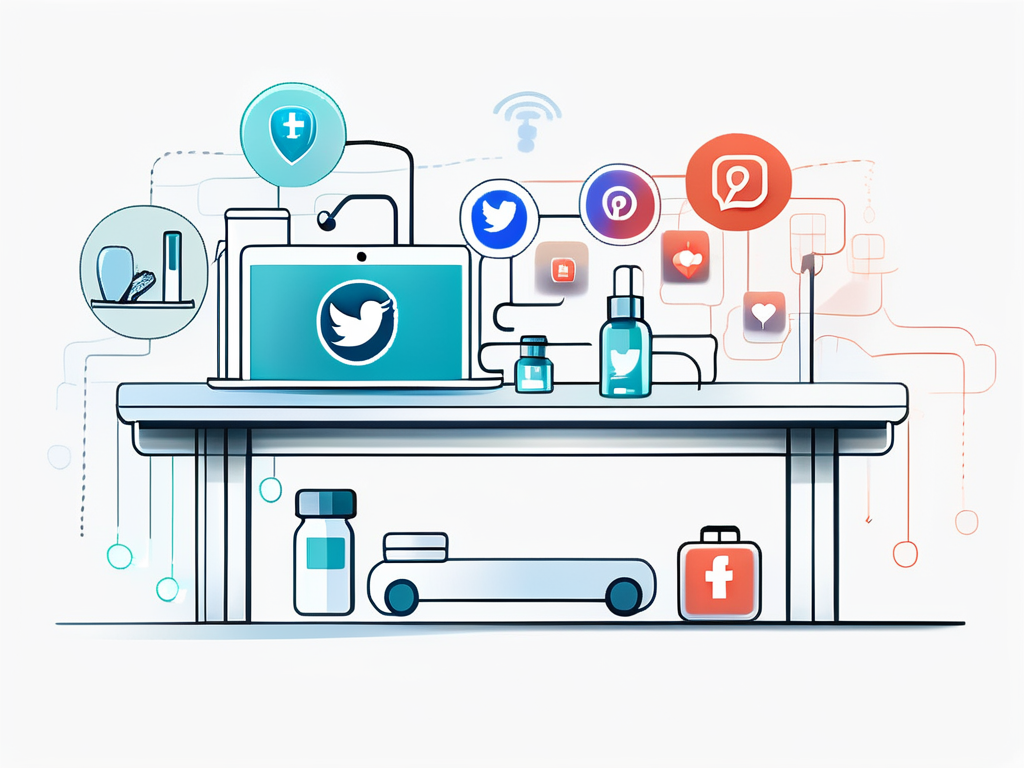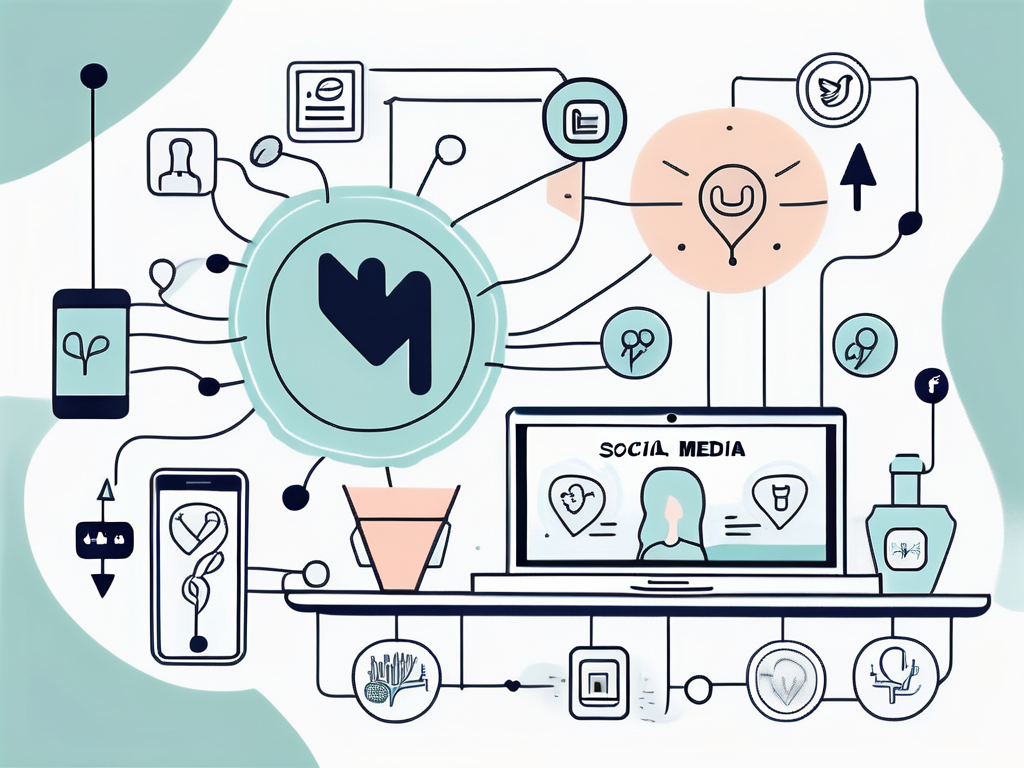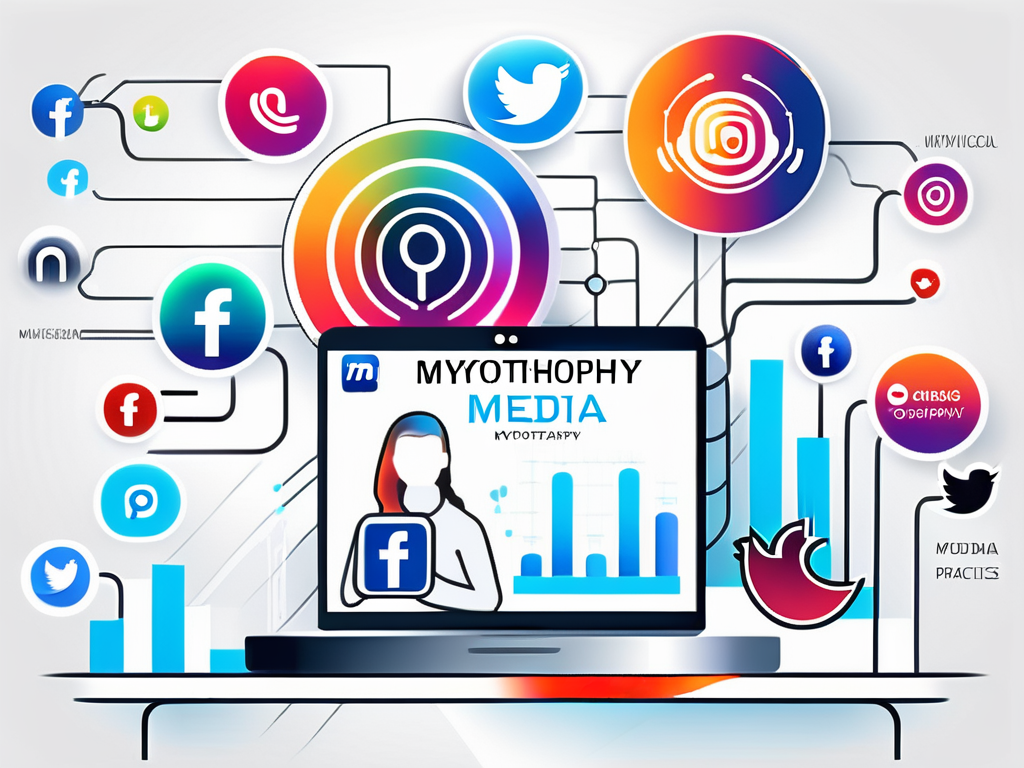In today’s digital age, social media has become an integral part of our daily lives. It has revolutionized the way we communicate, interact, and access information. While it may seem like social media is more suited for entertainment or personal use, it’s important to understand the significant benefits it can bring to healthcare industries, including myotherapy practices.
Understanding the Importance of Social Media in Healthcare
Social media has emerged as a powerful tool for healthcare professionals to connect with patients, share valuable information, and improve overall healthcare outcomes. It plays a vital role in modern healthcare, enabling practitioners to reach a wider audience, engage with patients on a more personal level, and foster a sense of community.

Furthermore, social media platforms provide a space for healthcare professionals to stay updated on the latest medical research, trends, and advancements in the field. By following reputable sources and engaging in online discussions, practitioners can enhance their knowledge and skills, ultimately leading to better patient care and treatment outcomes.
The Role of Social Media in Modern Healthcare
First and foremost, social media allows myotherapy practices to communicate and educate their patients beyond the confines of a physical clinic. By providing valuable health-related content, practitioners can play an active role in promoting preventive care and empowering patients to take control of their own health.
In addition, social media serves as a platform for practitioners to showcase their expertise and build credibility within the healthcare community. By sharing success stories, patient testimonials, and educational posts, myotherapy practices can establish themselves as trusted authorities in their field, attracting new patients and fostering long-term relationships.
The Impact of Social Media on Patient Engagement
Social media platforms offer a unique opportunity for myotherapy practices to engage with patients in a dynamic and interactive manner. By utilizing features like live Q&A sessions, virtual consultations, and educational videos, practitioners can engage patients in meaningful discussions, answer their queries, and address their concerns promptly.
Moreover, social media allows patients to share their healthcare journey, connect with others facing similar challenges, and seek support from the online community. This sense of belonging and camaraderie can have a positive impact on patient well-being, mental health, and overall treatment adherence, creating a supportive environment for healing and recovery.
The Benefits of Social Media for Myotherapy Practices
By embracing social media, myotherapy practices can reap several valuable benefits that can enhance their overall practice and patient experience.

Social media platforms provide a convenient channel for myotherapy practices to communicate with their patients. By utilizing direct messaging or comments sections, practitioners can offer personalized advice, answer questions, and provide ongoing support. This level of accessibility and responsiveness strengthens the patient-practitioner relationship, builds trust, and promotes satisfaction.
Moreover, social media platforms offer myotherapy practices the opportunity to showcase their expertise and educate patients on various aspects of musculoskeletal health. Through informative posts, videos, or live sessions, practitioners can engage with their audience, raise awareness about the benefits of myotherapy, and promote healthy lifestyle choices. This educational approach not only positions the practice as a trusted source of information but also empowers patients to take an active role in their well-being.
Building a Professional Network on Social Media
Social media is not just about connecting with patients; it also offers myotherapy practices an opportunity to network with other healthcare professionals. This can be beneficial for seeking advice, exchanging knowledge, and collaborating on research or referral opportunities. Participating in professional groups and forums allows myotherapy practitioners to be part of a larger healthcare community, fostering professional growth and development.
Furthermore, by engaging with colleagues in related fields such as physiotherapy, chiropractic care, or sports medicine, myotherapy practitioners can stay updated on the latest industry trends, treatment techniques, and research findings. This cross-disciplinary collaboration not only enriches the practitioner’s knowledge base but also opens up possibilities for interdisciplinary referrals and holistic patient care. Building a strong professional network on social media can lead to fruitful partnerships, continuing education opportunities, and a supportive community of like-minded healthcare providers.
Choosing the Right Social Media Platforms for Your Myotherapy Practice
With an array of social media platforms available, it’s crucial for myotherapy practices to choose the ones that align with their goals and target audience. Understanding the nuances of each platform can significantly impact the success of your social media marketing efforts.
When evaluating different social media platforms, it’s essential to delve deeper into their functionalities and user demographics. For instance, while Facebook boasts a large user base spanning various age groups, Instagram is known for its visual appeal and popularity among younger audiences. On the other hand, Twitter’s fast-paced nature makes it ideal for sharing quick updates and engaging in real-time conversations. By carefully analyzing these factors, you can make informed decisions about which platforms are best suited for promoting your myotherapy practice.
Evaluating Different Social Media Platforms
Each social media platform serves a different purpose, and understanding their unique features and user demographics is key to selecting the right ones for your myotherapy practice. Platforms like Facebook, Instagram, and Twitter are popular choices for healthcare practitioners due to their wide reach and diverse functionalities.
LinkedIn, often overlooked in the healthcare industry, can be a valuable platform for networking with other healthcare professionals and sharing industry insights. Additionally, platforms like YouTube offer opportunities to create educational videos about myotherapy techniques, further establishing your practice as an authority in the field.
Tailoring Your Social Media Strategy to Your Audience
Once the appropriate platforms have been identified, it’s important to tailor your social media strategy to cater to the needs and preferences of your target audience. Consider the type of content they find valuable, their preferred format (text, images, or videos), and the frequency of posting. By delivering content that resonates with your audience, you can maximize engagement and cultivate a loyal following.
Furthermore, engaging with your audience through interactive features like polls, Q&A sessions, and live videos can foster a sense of community and encourage meaningful interactions. Building relationships with your followers goes beyond promotional content and helps establish trust in your expertise as a myotherapist.
Implementing a Successful Social Media Strategy for Myotherapy
Successful social media strategies require careful planning, consistent execution, and regular evaluation.

Creating Engaging Content for Your Myotherapy Practice
High-quality and engaging content is the heart of any successful social media strategy. By providing valuable information, tips, and insights related to myotherapy, you can position your practice as a trusted authority in the field. This can include blog posts, videos demonstrating exercises, success stories, or infographics that simplify complex concepts.
Monitoring and Adjusting Your Social Media Strategy
Regularly monitoring your social media performance is crucial to understand what resonates with your audience and identify areas for improvement. Utilize analytics tools provided by social media platforms to gather insights on post reach, engagement, and audience demographics. This information can guide you in making data-driven decisions and optimizing your strategy to achieve better results.
Addressing Potential Challenges of Social Media in Myotherapy
While social media can bring significant benefits to myotherapy practices, it’s important to be mindful of potential challenges and take appropriate measures to mitigate them.
Managing Patient Privacy and Confidentiality on Social Media
Safeguarding patient privacy and confidentiality is essential in healthcare. When using social media, myotherapy practices should ensure compliance with relevant privacy regulations and maintain strict protocols to prevent the inadvertent disclosure of patient information. It’s important to educate staff on the appropriate use of social media and establish clear guidelines to prevent breaches.
Handling Negative Feedback and Reviews on Social Media
As with any online platform, myotherapy practices may encounter negative feedback or reviews on social media. When faced with criticism, it’s important to respond professionally, empathetically, and privately address any concerns. Turning negative experiences into positive ones by demonstrating genuine care and a commitment to resolving issues can enhance your practice’s reputation and trustworthiness.
In conclusion, leveraging the power of social media can be a game-changer for myotherapy practices. By embracing social media platforms, myotherapy practitioners can enhance patient communication, build professional networks, and establish themselves as trusted authorities in their field. However, it’s essential to navigate social media with caution, address potential challenges, and adapt strategies to align with patient needs and preferences. By incorporating social media into their practice, myotherapy practitioners can effectively engage their patients, educate the wider community, and expand the impact of their healing touch.
Ready to take your myotherapy practice to the next level? Join Wellth Daily’s free newsletter and become part of a vibrant community of health professionals who are mastering the art of clinic growth. With daily tips that take just 2 minutes to read, you’ll learn proven strategies to attract more clients with ease. Plus, you’ll gain access to a treasure trove of beautifully designed clinic resources to enhance your marketing efforts. Don’t miss out on the opportunity to grow faster than you ever thought possible. Subscribe FREE to Wellth Daily and start transforming your practice today!
